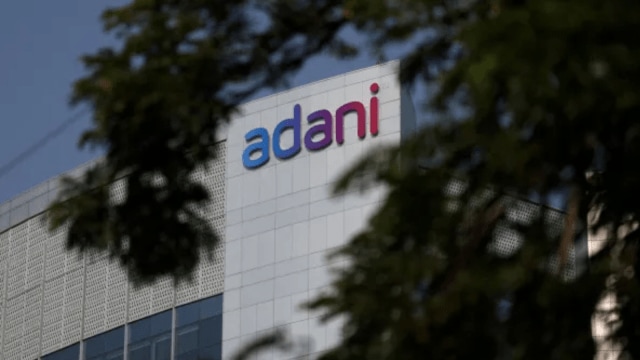The Centre has granted approval to Adani Power Limited (APL), a large thermal power producer, to lay an overhead transmission line to connect its Godda Ultra Super Critical Thermal Power Plant with the Indian grid through a Line-In Line-Out (LILO) arrangement of the Kahalgaon A–Maithon B 400 KV line. As of now, the Godda plant supplies electricity exclusively to Bangladesh.
For laying the proposed transmission line, which will pass through 56 villages of two tehsils — Godda and Poreyahat — in Godda district of Jharkhand, the Centre has conferred the same powers to the APL, which the telegraph authority possesses under the Indian Telegraph Act, 1885, for placing telegraph lines and posts. Under the Act, the authority can, from time to time, place and maintain a telegraph line under, over, along or across, and posts in or upon, any immovable property.

The Ministry of Power extended similar authority to APL by issuing an order on September 29 using powers under Section 164 of the Electricity Act, 2003.
The Ministry’s order comes in the wake of multiple, and unprecedented, amendments to regulations to enable this transmission connectivity to the APL’s Godda plant. This includes the ministry’s move to amend the guidelines for import and export of electricity, the Central Electricity Authority’s (CEA) move to amend procedure for facilitating cross border flows and the Central Electricity Regulatory Commission’s (CERC) move to amend the General Network Access regulations for Inter-State Transmission System (ISTS) and, separately, its regulations governing cross border trade.
The Ministry of Power and APL did not respond to emails seeking comments.
APL’s Godda power plant, which was declared as a Special Economic Zone (SEZ) by the Central Government in March 2019, supplies electricity exclusively to Bangladesh. However, after a regime change in Dhaka in August last year, the government had allowed as an interim arrangement to connect the Godda plant with ISTS, a high-voltage network in India that transmits electricity across state borders, enabling power flow from surplus regions to areas with deficits and ensuring grid stability. The ISTS is operated by Central Transmission Utility of India Ltd (CTUIL). The Centre’s decision will enable the APL to sell power to domestic discoms.
In fact, APL, earlier called Adani Power Jharkhand Ltd, wrote to the Ministry of Power on August 6, 2024, a day after the ouster of Bangladesh Prime Minister Sheikh Hasina on August 5. In the letter, it informed the government that “given the sustained increase in power demand across India, it would be beneficial if their generating station could cater to such demand in India, when the Bangladesh Power Development Board (BPDB) is not scheduling power from the plant on account of low demand, any default under PPA or any geo-political issue.”The matter was deliberated at the Ministry of Power on August 10 last year under the chairpersonship of Power Secretary, wherein it was decided that in order to accelerate the DTL [Diode-Transistor Logic] implementation process, CTUIL may provide APJL with standby ISTS Connectivity details, including the relevant ISTS substation, based on the amended Central Government Guidelines for Import/ Export (Cross Border) of Electricity (IECBE), as per the sources
Story continues below this ad
At that time, it was also highlighted that “consequential amendments” would be carried out by CERC in its Regulations. This was needed to enable the scheduling of power from APJL’s generation based on available margin in ISTS.
The latest approval by the Power Ministry is granted for 25 years. APL will have to seek the consent of local bodies, Railways, National Highways, State Highways etc. before erection of the proposed line, and operate it after receiving approval from the Centre’s electrical inspector, the order said. It is also subject to compliance of the requirements of the provisions of the Electricity Act, 2003. APL will also have to submit clearances to the Central Electricity Authority after obtaining the same from Civil Aviation, Defense etc.
“In case, the route of above overhead lines (or some portion of the route of above overhead line) falls in the Great Indian Bustard (GIB) area, the applicant has to comply with the orders of the Hon’ble Supreme Court in the petition No.838 of 2019 regarding Great Indian Bustard (GIB) case, and the directions of the technical/expert committee constituted by the Hon’ble Supreme Court in this regard,” it said.
TIMELINE
August 6, 2024: Adani pitches for Godda plant, which provides power to Bangladesh, to be allowed to cater to demand in India.
Story continues below this ad
August 10, 2024: Power ministry says “in view of emerging geo-political situation in Bangladesh”, standby connectivity may be granted to Godda plant.
August 12, 2024: Power Ministry amends Guidelines for Import/ Export (Cross Border) of Electricity, 2018, making way for connecting APL’s Godda plant to Indian Grid, facilitating sale of power
August 14, 2024: CEA amends procedures, allowing government to permit connecting generating stations to Indian Grid
December, 2024: CERC amends rules to facilitate standby connectivity to Godda plant









